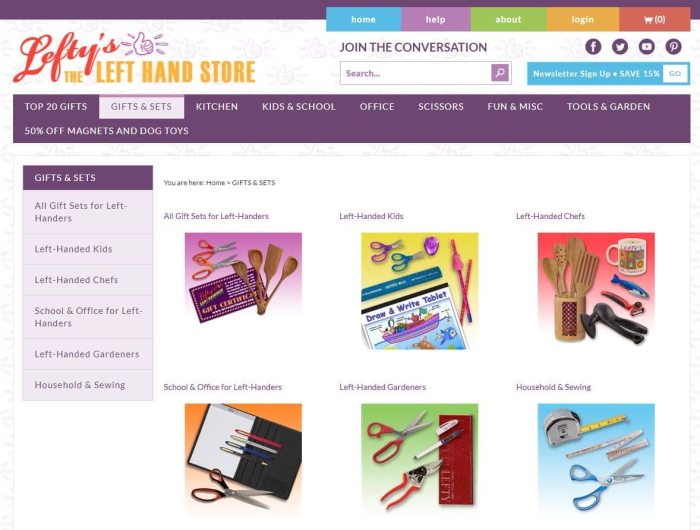
Dive into the world of niche market product ideas, where creativity meets opportunity. Uncover unique ways to identify target audiences, develop successful products, and market them effectively. Get ready for a journey filled with innovation and growth.
Generating Niche Market Ideas
In the world of business, finding a niche market is essential for success. By identifying potential target audiences, researching trending industries, and exploring unique hobbies or interests, you can come up with innovative product ideas that cater to specific consumer needs.
Identify Potential Target Audiences
When brainstorming niche product ideas, it's crucial to pinpoint specific target audiences. This could include demographics such as age, gender, location, or even psychographics like hobbies, interests, or values. By understanding the needs and preferences of your target market, you can create products that resonate with them on a deeper level.
Research Trending Industries
Keeping an eye on trending industries and emerging markets can also spark ideas for niche products. Whether it's the rise of sustainable fashion, the popularity of plant-based foods, or the growth of the wellness industry, identifying areas with high demand and low competition can lead to lucrative niche opportunities.
Explore Unique Hobbies or Interests
Sometimes, niche product ideas can stem from unique hobbies or interests that haven't been fully explored yet. Whether it's a passion for board games, a love for vintage fashion, or an obsession with artisanal coffee, delving into niche subcultures can uncover hidden opportunities for innovative products that cater to niche audiences.
Characteristics of Successful Niche Products
When it comes to successful niche products, there are several key characteristics that play a crucial role in their popularity and profitability. These characteristics set them apart from mainstream products and make them highly sought after by a specific target audience.
Importance of Solving a Specific Problem or Meeting a Particular Need
Successful niche products are designed to address a specific problem or cater to a particular need within a niche market. By focusing on solving a unique challenge or fulfilling a specific desire, these products resonate deeply with consumers who are looking for tailored solutions.
This targeted approach not only sets the product apart from generic alternatives but also creates a loyal customer base that values the personalized benefits it offers.
- Niche products provide a clear and direct solution to a specific issue, making them indispensable for their target audience.
- By meeting a particular need effectively, niche products establish a strong emotional connection with customers, fostering loyalty and repeat business.
- Identifying and addressing niche market gaps allows for innovative product development, setting the brand apart as a leader in its specialized field.
Significance of Authenticity and Quality in Niche Products
Authenticity and quality are paramount in the success of niche products. Consumers drawn to niche markets are often highly discerning and value products that are genuine, well-crafted, and unique. By prioritizing authenticity and maintaining high standards of quality, niche brands can build a reputation for excellence and credibility within their niche community.
- Authenticity in niche products establishes trust and credibility, attracting customers who appreciate transparency and integrity in their purchases.
- High-quality materials, craftsmanship, and attention to detail differentiate niche products from mass-produced alternatives, enhancing their perceived value and desirability.
- Niche products that prioritize quality over quantity tend to command premium pricing, appealing to customers who value superior craftsmanship and durability.
Product Development for Niche Markets
In the process of designing and prototyping a niche product, several key steps need to be followed to ensure its success in the market. Testing niche product ideas with a target audience is crucial to gather valuable feedback and make necessary iterations for product refinement.
Designing and Prototyping a Niche Product
Creating a niche product involves the following steps:
- Identifying the niche market: Conduct thorough market research to understand the needs and preferences of the target audience.
- Concept development: Brainstorm ideas and create a unique concept that addresses a specific problem or caters to a particular niche.
- Prototyping: Develop a prototype of the product to test its functionality, design, and usability.
- Iterative design: Gather feedback from potential customers and make necessary improvements to the product based on their inputs.
- Finalizing the product: Once the prototype has been refined, finalize the design and prepare for production.
Testing Niche Product Ideas with a Target Audience
Strategies for testing niche product ideas include:
- Conducting focus groups: Gather a small group of target customers to test the product and provide feedback on its features and usability.
- Launching a pilot program: Introduce the product to a limited audience to gauge their response and gather insights for improvement.
- Offering samples or demos: Provide free samples or demos of the product to potential customers to gather feedback on its performance and appeal.
Role of Feedback and Iteration in Refining Niche Products
Feedback and iteration play a crucial role in refining niche products by:
- Identifying areas for improvement: Feedback from customers helps pinpoint areas that need refinement or enhancement in the product.
- Iterative design process: Making continuous improvements based on feedback ensures that the product meets the needs and expectations of the target audience.
- Enhancing product-market fit: Iterating on the product based on feedback helps in achieving a better fit between the product and the niche market.
Marketing Strategies for Niche Products
In the competitive business landscape, effectively marketing niche products to a specific audience is crucial for success. It requires a deep understanding of the target market and innovative approaches to stand out from the crowd.
Utilizing Social Media Platforms
Social media platforms have become powerful tools for reaching niche audiences. By creating engaging content tailored to the interests of the target market, companies can build a loyal following and generate buzz around their niche products.
- Identify the most relevant social media platforms where your target audience spends their time.
- Create compelling visual content that showcases the unique features and benefits of your niche product.
- Engage with your audience through interactive posts, contests, and behind-the-scenes sneak peeks.
- Collaborate with influencers or brand ambassadors who resonate with your niche market to expand your reach.
Personalized Email Marketing Campaigns
Email marketing remains a powerful tool for reaching niche audiences in a more personalized manner. By segmenting your email list based on demographics, preferences, and purchase history, you can tailor your messages to resonate with specific niche segments.
- Craft personalized email content that speaks directly to the needs and interests of your niche audience.
- Utilize automation tools to send targeted emails based on customer behavior and engagement levels.
- Incorporate exclusive offers, discounts, or limited-time promotions to incentivize niche customers to make a purchase.
- Track and analyze the performance of your email campaigns to refine your strategies and optimize results.
Innovative Guerrilla Marketing Tactics
Guerrilla marketing tactics can be highly effective in capturing the attention of niche audiences through unconventional and creative means. By thinking outside the box and leveraging grassroots strategies, companies can create memorable experiences that resonate with their target market.
For example, a niche skincare brand could organize pop-up beauty events in trendy locations frequented by their target audience, offering personalized skincare consultations and product samples.
- Consider partnering with local artists, influencers, or community organizations to co-create unique marketing campaigns that align with the values and interests of your niche market.
- Utilize guerrilla tactics such as street art, flash mobs, or interactive installations to generate buzz and create a buzz around your niche product.
- Encourage user-generated content by leveraging hashtags, challenges, or contests that inspire niche customers to share their experiences with your product on social media.
Closing Summary

As we wrap up our exploration of niche market product ideas, remember that the key to success lies in authenticity, quality, and a deep understanding of your niche audience. Embrace the challenges and rewards that come with catering to a specialized market, and watch your business thrive.
Top FAQs
How can I identify potential target audiences for niche products?
To identify potential target audiences, consider conducting market research, analyzing consumer behavior, and identifying specific demographics or interests that align with your niche product.
Why is authenticity important in niche products?
Authenticity is crucial in niche products as it helps build trust with your target audience, differentiate your brand from competitors, and create a loyal customer base.
What are some innovative marketing approaches for niche products?
Some innovative marketing approaches for niche products include influencer collaborations, interactive social media campaigns, and personalized marketing strategies tailored to niche audiences.











